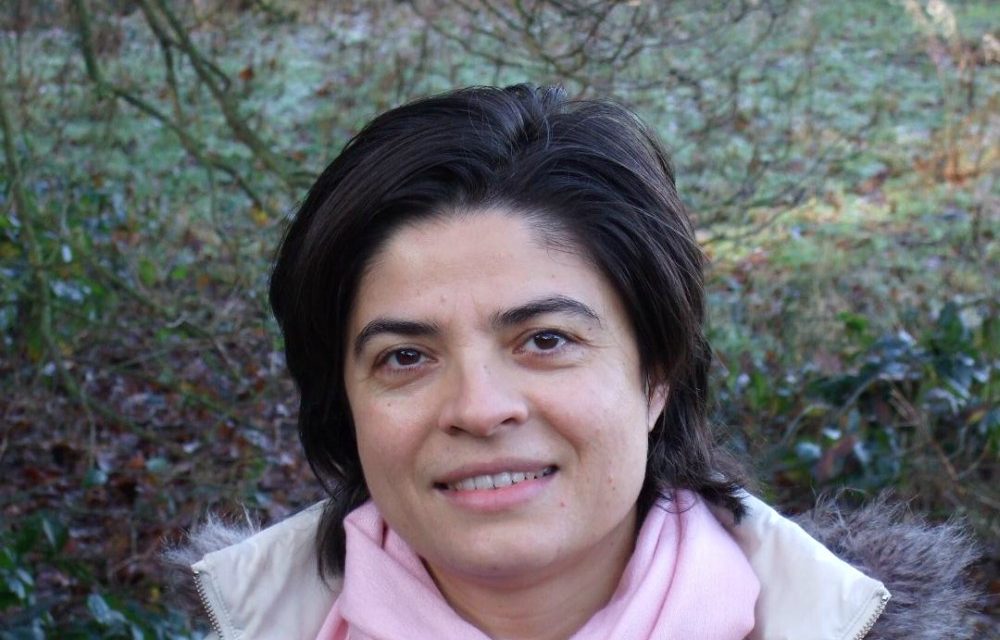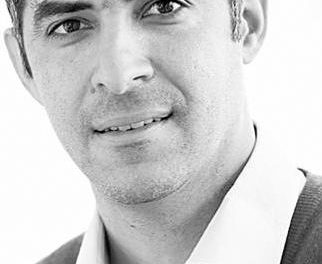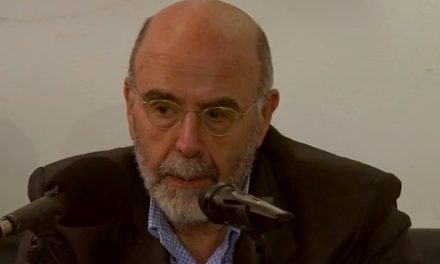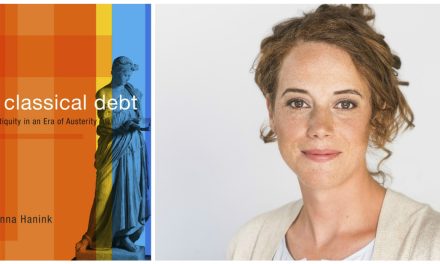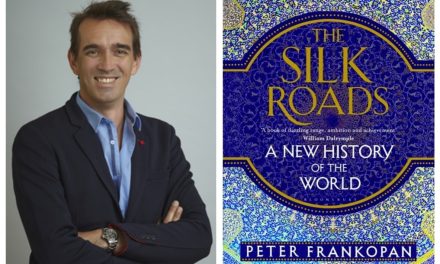Dr Liana Giannakopoulou teaches Modern Greek Literature in the Faculty of Modern and Medieval Languages of the University of Cambridge. She is the author of The Power of Pygmalion. Ancient Greek Sculpture in Modern Greek Poetry (Peter Lang 2007) and editor of the anthology The Parthenon in Poetry. An Anthology (in Greek, ELIA 2009). She has also co-edited Culture and Society in Crete. From Kornaros to Kazantzakis (Cambridge Scholars 2017), a selection of papers presented at an international conference held in Cambridge. She is the current Chair of the Society for Modern Greek Studies.
Dr Giannakopoulou was interviewed by the Press & Communications Office at the Embassy of Greece in London on the present and the future of Modern Greek Studies in the UK Universities and on the Society for Modern Greek Studies.
What does the teaching of Modern Greek in Cambridge entail?
The students who wish to learn Modern Greek in Cambridge can do so by choosing one of the two papers on offer in the second or final year of their studies as one of the scheduled options of their degree. We have students from the Faculty of MMLL (Modern and Medieval Languages and Linguistics), from the Faculty of Classics, from the Faculty of Asian and Middle Eastern Studies and from the Faculty of History. This year we are also able to offer a paper at MPhil level.
Modern Greek papers in Cambridge have a broad scope for one-year papers. The curriculum comprises the teaching of literature and cinema as well as ab initio intensive language teaching that is expected to allow students to approach the nation’s literature and culture in the original language. The former is carried out by myself and the latter by my colleague, Dr Regina Karousou-Fokas with whom we share the duties of running the Section.
Modern Greek is a highly sought-after course among the students despite the fact that it is a challenging option. On the one hand, it is about coping with the intense pace of language learning and literature study: students need to acquire a good reading knowledge of Greek in the short time of Cambridge’s three teaching terms (20 weeks in all). In the first two terms, they attend two hours per week of language classes which concentrate on the essentials of grammar and the development of basic vocabulary. In the last term, students are required to attend workshops on translation from Greek to English. They also become acquainted for the first time with the work of important authors such as Cavafy, Seferis, Doukas, Koumandareas, Gourogiannis, Markaris and Dimitriou as well as Katerina Anghelaki-Rooke, Zoe Karelli, Ritsos, Engonopoulos etc. They are also exposed to Greek cinema, from Angelopoulos to Koutras, Boulmetis and others. They need to familiarize themselves with the historical frame in which the work appears and understand the socio-cultural context to which they belong. In examination, they are required to tackle a compulsory unseen translation, taken from a literary text of authors like Margarita Karapanou, Vassilis Alexakis, Dimitris Chatzis, Vassilis Vassilikos. They also write two essay questions based on their literature and culture choices.
The learning curve is steep indeed, but this is a challenge they all embrace with great results!
Could you give us some details on the profile of students enrolled in the Modern Greek Section of the University of Cambridge? How challenging is it to teach Modern Greek Studies to foreign students who lack common cultural background and know almost nothing about the Greek history and culture?
The students who take our papers usually have no connections with Greece and, with the exception of students form Classics, the Greek language and this is why they are considered challenging options. With no cognate language offered in the Faculty of MMLL, they attract students that are highly motivated, determined and have a high aptitude for language learning. Good progress on the subject necessitates independent work and self-motivation.
The greatest challenge here is to try and make Modern Greek literature and culture relevant to them and to show that Modern Greek is not a niche, esoteric subject that one studies in isolation but one that is intrinsically connected with the world in which they live. Issues of multiculturalism, identity, otherness, immigration as well as women’s writing, ideology and politics and many others are at the forefront of the topics they engage with through the papers offered. Many of our students emphasize how studying Modern Greek gave them a fresh outlook on to the world today.
What would motivate a foreign student to study Modern Greek literature and culture?
For most students, there is no eminently “useful” reason for learning Modern Greek. No obvious practical gain. Few are the ones that see this as an opportunity to engage with their heritage. For most, it is the wish to explore a cultural landscape and a language that lies outside what could be considered the “canon” of mainstream European literature. To engage with literature that they would otherwise never have been exposed to and, in the case of students from the Classics Faculty, to gain a broader perspective of Greece than just the classical.
Students are attracted for different reasons. Some are initially interested mostly in the language itself, finding it refreshing or challenging to take up the opportunity to learn a modern language or to start afresh with a new language, a language with a different alphabet, different structure, a case system (as one of our students noted). A language that can also be examined through its many heritages, and whose continuity can be seen in terms of change and development.
Others find themselves immersed in modern Greece, learning about its complex relationship with the ancient Greek civilization. This is where the study of the poetry of Cavafy and Seferis, who use ancient Greek myth and history as a major component of their subject matter, is of great appeal.
Some students are attracted to the subject because they wish to gain an understanding of the country’s cultural history relative to the political and economic crises faced by Greece today, as well as how Greeks themselves consider their own identity both as a nation and within Europe.
Last, but not least, in the process of engaging with the above, what students have found fascinating is the insight they gain with respect to the nation’s history. Almost no one begins their Modern Greek studies with the intention to deepen their understanding of the history of the place, but many are those who, having completed their studies, lament their previous ignorance of the rich and multi layered recent history of Greece, and comment on the connections they discover of modern Greek history with its European neighbours.
What are the prospects and what are the benefits one gets from such studies?
With the students reaching, as reported by one external examiner, “an impressive standard”, it is no surprise that various students over the years have received scholarships from the Greek Ministry of Culture and Sports for the International Summer School for Greek Language, Culture and History organized by IMXA in Thessaloniki. Others have self-organised and attended summer schools in Athens or other places in order to improve their language skills.
Upon graduation, as is the case for all graduates from the Modern Languages and Classics Faculties, our students find employment in a wide range of professions including language teaching (school and university level), translation/interpreting, journalism, the diplomatic service, publishing, marketing, public service, banking and investment, accountancy, law, logistics and distribution, teaching English as a foreign language, arts and recreation, speech and language therapy, and information technology among many others. Notably, former students of Greek have gone on to work for the European Union or gained experience in Greece that has allowed them to specialize in refugee studies. Others have become volunteers in refugee camps in Athens.
However, even among those whose career destination after university is not related specifically to Greek affairs, many continue their close relationship with the Greek language and culture.
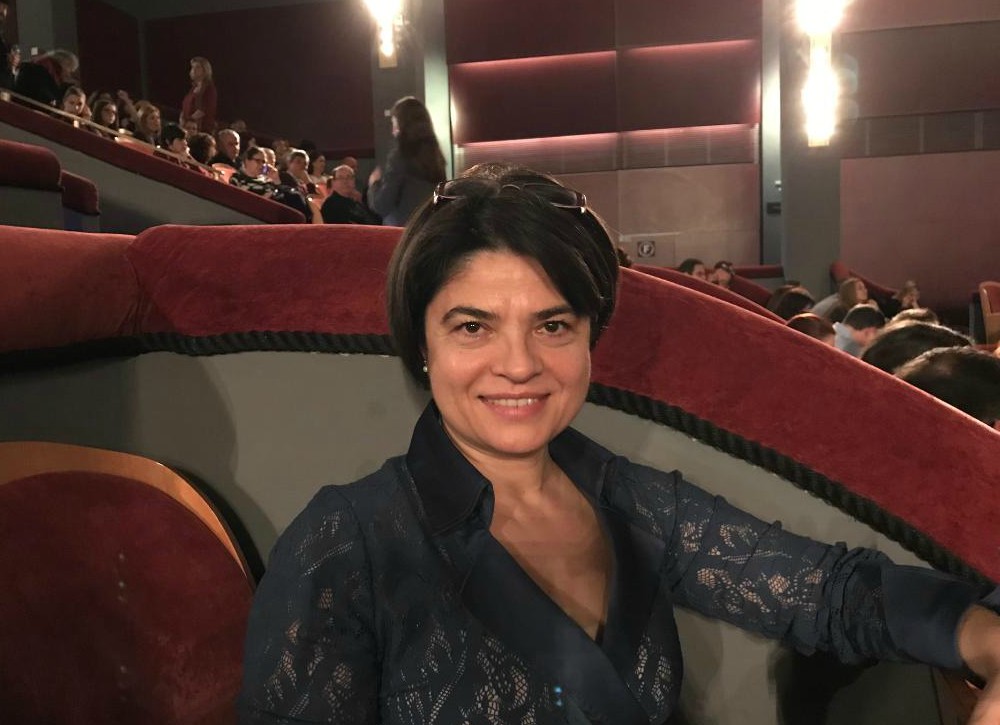 Do you believe that there are more advantages for a Greek graduate to continue his post-graduate studies on Modern Greek literature, history and culture in the UK than in Greece?
Do you believe that there are more advantages for a Greek graduate to continue his post-graduate studies on Modern Greek literature, history and culture in the UK than in Greece?
I do not think that there are more advantages, but rather different ones. One thing a post-graduate degree outside Greece would offer to a Greek graduate would be a different perspective on their studies: an opening up to a wider, multicultural community, an encounter and more active engagement with other cultures and literatures, perhaps a greater realization of the need to place and justify what they do in a broader context. Their work becomes informed by a broader intercultural outlook and becomes, therefore, relevant to a wider audience.
Modern Greek Studies in the UK don’t attract a great number of students anymore and many chairs have been abolished. What are the causes for the decline of interest in such studies and how could this be reversed?
Modern Greek, just like other languages and the Humanities more generally, has been the victim of a change of priorities in Higher Education in Britain but also in modern societies more widely. Universities are now increasingly managed as businesses, and courses are evaluated in terms of their profitability. Therefore, the number of students registering for them is of crucial importance. With the increase in tuition fees, students understandably prioritize subjects that offer clearly identifiable job prospects and greater security. Universities in turn tend to support such subjects at the expense of smaller, more “niche” ones. The campaign for the support of STEM subjects at school is also affecting the number of students who take on Modern Languages at A Level – and not just Modern Greek.
This can be reversed, but in order to do so a very focused and orchestrated effort is necessary. A good precedent is the US where Greek Studies have successfully been funded by institutions and individuals willing to support the promotion of all aspects of Modern Greek culture, history and society. For this to happen in Britain, a conscious and targeted coordination between members of the academic community, the managements of the universities and the various donor institutions and individuals would be required. Already such an initiative and concerted effort led to the preservation of the Koraes Chair at King’s College London: the academic community in Britain is very fortunate indeed to count Professor Gonda Van Steen as one of its members.
I am also very proud to be part of another initiative myself at the University of Cambridge, where the Faculty of Modern and Medieval Languages and Linguistics and the Faculty of Classics have joined forces to launch in the summer of 2019 the Cambridge Centre for Greek Studies.
This is a Centre that aims to become an international hub for the very best pioneering research in cross-disciplinary Greek studies, covering the entirety of the Greek speaking world from the Bronze Age to the present day. In this aspiring, large-scale frame scholars engaged in the study of Greek culture will be encouraged to think ambitiously about issues of identity, religion, gender, imperialism, regionalism, Europe and the East, populism, technology, sexuality and the environment to name but a few. It will also encourage imaginative collaborations and the addressing of big, bold questions that take our discipline outside its comfort zones.
I hope that such an initiative will impress and inspire cultural institutions and foundations to approach and support the Centre’s efforts and aims, grasping in this way another opportunity to bring Modern Greek Studies forward.
Apart from some outstanding, world-known representatives of Modern Greek Literature, active mainly during the late 19th century and in the first decades of the 20th century, would you say that today’s Greek literature and poetry can showcase equally outstanding authors and poets? Or do we mainly imply the giants of the previous century, when we talk about Modern Greek prose and poetry?
We cannot ignore the giants of the previous century. One cannot teach Modern Greek literature and leave out Cavafy or Seferis for example. And I concede that it is very difficult to achieve the impact that authors such as Nikos Kazantzakis or again Cavafy have had abroad. But there is great admiration and respect for Seferis and Ritsos too. There are, however, also other writers who are well-known and loved in the English and French speaking world for instance, such as Petros Markaris and Katerina Anghelaki-Rooke. A well-known hurdle here is the number of translations published in English – the percentage of foreign titles in relation to the total number is very small. Big, commercial publishers do not take on translations of Modern Greek literature easily. But we are fortunate that gifted translators such as Karen Emmerich for example, work hard to make Modern Greek literature available to non-Greek speakers and various small publishers such as the Birmingham Modern Greek Translations, Denise Harvey, Colenso Books or Aiora Press support such efforts.
In our teaching programme in Cambridge we make a point of including more recent voices too, authors whose work reflects contemporary issues that put the students in contact with Greece in the 21st century. This is how they get to know all the writers I have mentioned in question 1 above. No writer becomes a “giant” in a vacuum and this is why we also try to promote contemporary and younger poets and prose writers through events that we organize in collaboration with the Society for Modern Greek Studies, the Cambridge Hellenic Learned Society and the Hellenic Centre.
Many of your research projects focus on the close relation between Modern Greek poetry and ancient sculpture. What do you believe Greek poets today draw inspiration from? Is the antiquity today an exhausted source of inspiration?
It is certainly not exhausted, but it does not take center stage either. Greek poets today draw inspiration from a wide variety of topics as recent anthologies testify. Antiquity is one of them and it is approached in an original and often subversive manner. Although Modern Greek literature was in the past a “national institution” it was also the space in which a subversive discourse against antiquity’s powerful hold of Greek identity was developed. As I have shown in my research, in both my books, from early on poets engage rather critically with the glorious classical past. Today this past is perhaps not as dominant a source of inspiration as it was in previous decades, but younger voices such as Phoebe Giannisi or Haris Psarras offer new, original perspectives on it. Antiquity has the power of transformation and adaptation and as such it can never be completely ignored.
Most academic and scientific fields especially humanities are being currently involved in an interdisciplinary/inter-scientific dialogue in order to develop interfaces, expand, and survive. Is this the case with the Modern Greek studies? Which scientific fields would Modern Greek studies develop a dialogue with?
I have seen many fascinating dialogues developing between Modern Greek studies and other fields: in the domain of literature, with which I am more familiar, I have seen comparative studies involving theatre, medicine, the visual arts and material culture, adoption studies, gender studies, film studies, (post-) colonialism, classical reception, translation, linguistics and heritage studies, cultural studies. I am sure there are many others.
You are the Chair of the Society for Modern Greek Studies. Could you please tell us more about the activities and the aims of the Society?
The main purpose of the Society for Modern Greek Studies is to provide free cultural and educational events related to Greece and Cyprus and to support the teaching, learning and research that relate to any aspect of Modern Greek and Cypriot culture. It is the UK national body representing the subject and is affiliated to the European Society of Modern Greek Studies.
The Society is open to students, academics and the general public – to everyone who shares our passion for and commitment to the promotion of Greece and Cyprus through their literature, history, cinema and any other aspect of their culture from the 19th century to today. We have two annual flagship events: a public lecture on the occasion of our AGM and a graduate research colloquium. The public lecture is given by an invited speaker, a distinguished member of the academic community, and is open to all. The SMGS Graduate Colloquium offers postgraduate students an opportunity to present their research to their academic peers and seniors, and to receive constructive feedback. We believe that this plays an extremely valuable part in our students’ academic development.
The Society also has, since 2015, its own online peer-reviewed journal, MGSO which published original work by new researchers and established academics alike and which is available free of charge on the Society’s website.
On our website readers can find a list of the events we have organised in the past and the ones we are planning for the coming months; it is also a useful source of information for events organized by other bodies which are related to the Society’s interests and aims, as well as training and job opportunities. Our only income comes from our membership fee, so we always hope that more and more people will consider joining us in order to support us in our aim of maintaining the relevance and impact of Modern Greek and Cypriot culture in the wider community.
What are you currently involved in as an academic and what are your plans for the future?
I am involved in the teaching of our papers in Cambridge both at undergraduate and postgraduate level and in the planning of an MPhil course that will contribute to the newly established MPhil in Greek Studies that will be offered in Cambridge from the academic year 2020-21.
My future research plans involve the developing of a digital edition of the work of one of our most prominent poets – this is still in the early stages of planning. And I will of course continue to publish in the areas of my research interests.
In terms of public engagement, I will participate at the annual event held in the University of East Anglia, “Voices from Greece“, on the topic of Myth. My presentation is “Myth in Greek women’s poetry”. I will also continue to support the Cambridge Centre for Greek Studies in its activities to promote Greek culture and look forward to the planning and implementation of future events of the Society for Modern Greek Studies.
Read also via Greek News Agenda: Reading Greece | Professor Gonda Van Steen on her lifelong fascination with all things Greek ; Professor Roderick Beaton: “Europe is unthinkable without Greece” ; Reading Greece: Emilios Solomou on the Challenges and Prospects of Greek Literature Abroad ; Reading Greece | Richard Clogg: “I am continually struck by the ignorance of the recent history of Greece that exists in the UK”
TAGS: EDUCATION | GREEK LANGUAGE | MODERN GREEK STUDIES

